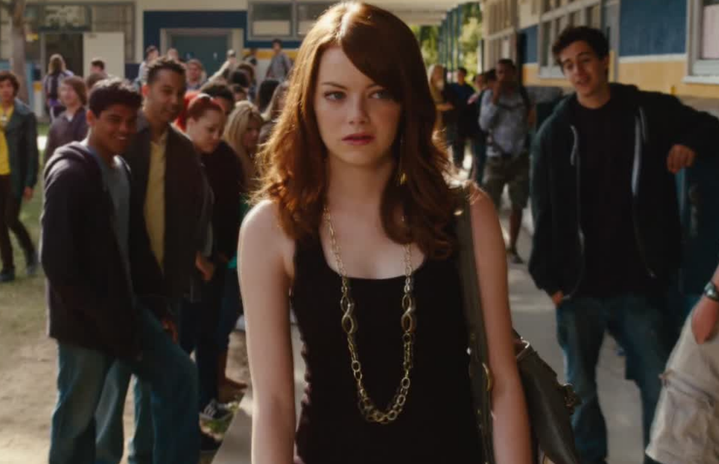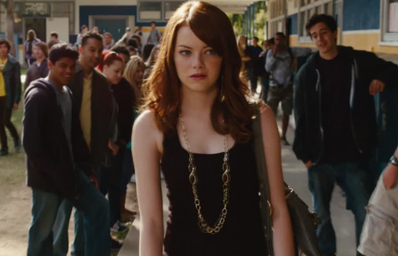She’s hot and good with cars. She’s “one of the boys,” but still in the male gaze. She never wears makeup yet her skin is naturally perfect. She’s…the cool girl.
The “cool girl” trope has been around for much longer than you’d think, but has progressed as a women’s traditional role in society changed with social norms. This fictional archetype created by the male writer is seen scattered throughout movies, TV shows, books and more.
The trope was highlighted in Amy Dunne’s “Cool Girl” monologue in Gone Girl.
“Being the Cool Girl means I am a hot, brilliant, funny woman who adores football, poker, dirty jokes and burping, who plays video games, drinks cheap beer…jams hot dogs and hamburgers into her mouth…while maintaining a size two.”
After the release of this movie, many film critics began to recognize the recurring character that later coined the name, “cool girl.”
The first “cool girl” was seen in the 1920s. Actress and flapper Clara Bow danced, drank, smoked and drove cars with boys in a variety of films. Bow even mentioned in an interview, “I always played with boys. I never had any use for girls and their games. I never had a doll all in my life.”
Flash forward to a more current “cool girl,” a prime example represented by Megan Fox in Transformers. The most iconic scene is when she’s fixing a car wearing a crop top while looking utterly flawless all in one.
This is one important aspect of the “cool girl” trope: girls looking gorgeous while doing traditionally masculine activities, such as fixing a car.
More examples of this are Cameron Diaz’s character in There’s Something About Mary, when she tells the protagonist that she just wants to go home and “watch ESPN.” Or Robin Scherbatsky in How I Met Your Mother, whose personality is centered around drinking beer, smoking cigars, and going to the shooting range to blow off some steam.
Not only do “cool girls” seem to enjoy doing masculine things, but they actively hate on other girls and their feminine activities.
For example, Donna Pinciotti from That ’70s Show is put in direct contrast to Jackie Burkhart. For the first few seasons, Jackie is seen as annoying and shallow for enjoying doing her makeup, dressing femininely and talking about boys and hair. Meanwhile, Donna doesn’t “wear any makeup” but somehow wakes up naturally flawless, dresses more masculine and loves to wrestle and play basketball. She becomes the more likable character in the first few seasons and catches the attention of other men on the show.
This trope needs to be torn down.
Don’t get me wrong, there is nothing wrong with liking some pizza and playing darts, or drinking some beer while rooting for your favorite football team. The first genuine friend group I made in college is a group of four boys, who later became some of my closest friends to this day.
However, the way that this trope is represented through media and the unrealistic expectations it places on women are incredibly sexist. The “cool girl” is sexism at its finest yet the most unperceivable at the same time, creating an old narrative that we’re all tired of hearing.
The “cool girl” allows herself to act as a doormat to men and never develop her own true personality. Her entire character is created by the expectation of never speaking up for her own thoughts, beliefs, and being so “go-with-the-flow” that the man finds her attractive.
The man then realizes that she’s “not like other girls.” Other girls cause drama, but this girl doesn’t mind a single thing about anything.
Not only is the concept of women presenting themselves solely for the male gaze problematic, but forcing themselves to somehow eat twenty wings and weigh 115 is paradoxical and impossible. Trying to become the “cool girl” is unachievable in real life, which is what the media does not represent.
Trying to become the “cool girl” will leave a girl completely lost in how to express not only their feminine side but her masculine side as well. It’s never worth it. These characters were written incorrectly by men, and that’s something that needs to be heard and acknowledged by girls everywhere.


